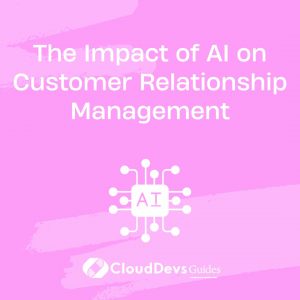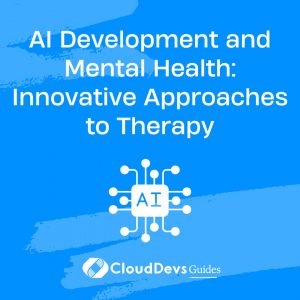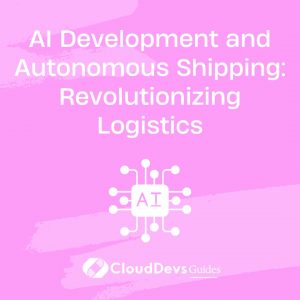The Impact of AI on Customer Relationship Management
In today’s fast-paced business landscape, where customer-centricity is key to success, the integration of Artificial Intelligence (AI) with Customer Relationship Management (CRM) systems has emerged as a game-changer. This synergy is revolutionizing how businesses manage their customer interactions, providing unparalleled insights, streamlining processes, and delivering exceptional personalized experiences. In this blog, we will delve into the profound impact of AI on CRM, exploring its various facets, benefits, and implications.
1. Understanding AI in CRM
1.1. AI-Powered Customer Insights
One of the most significant contributions of AI to CRM is its ability to provide deep and actionable customer insights. By analyzing vast amounts of data from various sources, AI can identify patterns, preferences, and behaviors that were previously challenging to uncover. These insights empower businesses to segment their customers effectively, understand their needs, and tailor their offerings accordingly.
1.2. Predictive Analytics for Enhanced Anticipation
Predictive analytics, driven by AI, enables businesses to anticipate customer behavior with impressive accuracy. By analyzing historical data, AI algorithms can forecast future actions, such as purchasing patterns or potential churn. This proactive approach empowers companies to take preemptive measures, nurturing customer relationships and mitigating potential issues.
2. AI-Driven Personalization
2.1. Delivering Tailored Experiences
AI facilitates hyper-personalization by crafting individualized experiences for customers. By analyzing each customer’s historical data, browsing behavior, and preferences, AI can suggest relevant products, content, and offers. This level of personalization enhances customer engagement and drives conversions.
2.2. Chatbots and Virtual Assistants
Chatbots powered by AI have revolutionized customer interactions. They provide instant responses, 24/7 availability, and consistent communication. These virtual assistants can handle routine inquiries, freeing up human agents to focus on more complex tasks. Natural Language Processing (NLP) capabilities enable chatbots to understand and respond contextually, delivering a seamless customer experience.
Code Sample: Implementing a Basic Chatbot
python
import nltk
from nltk.chat.util import Chat, reflections
pairs = [
[
r"hello|hi|hey",
["Hello! How can I assist you today?", "Hi there! How can I help you?"],
],
# More pattern-response pairs can be added here
]
chatbot = Chat(pairs, reflections)
print("Chatbot: Hello! How can I assist you today?")
while True:
user_input = input("You: ")
if user_input.lower() == "exit":
break
response = chatbot.respond(user_input)
print("Chatbot:", response)
3. Optimizing CRM Processes
3.1. Automated Data Entry and Management
AI-powered CRM systems can automate the tedious task of data entry and management. By extracting relevant information from emails, social media, and other sources, AI reduces the chances of human error and enhances data accuracy. This automation frees up valuable time for employees to focus on higher-value tasks.
3.2. Sales Forecasting and Lead Scoring
AI-driven CRM tools can significantly improve sales forecasting accuracy. By analyzing historical sales data and external market factors, AI algorithms generate more reliable predictions. Additionally, lead scoring, which involves assessing the likelihood of a lead converting into a customer, benefits from AI’s ability to analyze a wide array of variables.
Code Sample: Simple Sales Forecasting Model
python
import pandas as pd
from sklearn.model_selection import train_test_split
from sklearn.linear_model import LinearRegression
from sklearn.metrics import mean_squared_error
# Load and preprocess data
data = pd.read_csv("sales_data.csv")
X = data.drop("sales", axis=1)
y = data["sales"]
X_train, X_test, y_train, y_test = train_test_split(X, y, test_size=0.2, random_state=42)
# Build and train the model
model = LinearRegression()
model.fit(X_train, y_train)
# Make predictions and evaluate the model
predictions = model.predict(X_test)
mse = mean_squared_error(y_test, predictions)
print("Mean Squared Error:", mse)
4. Reshaping Customer Experiences
4.1. Enhanced Customer Support
AI-driven CRM solutions enable proactive and efficient customer support. Chatbots and virtual assistants can address common queries instantly, while sentiment analysis tools gauge customer emotions, allowing agents to respond empathetically. This blend of AI and human touch creates a more satisfying support experience.
4.2. Voice and Image Recognition
AI’s ability to comprehend and respond to voice commands and images enhances customer experiences. Voice assistants like Amazon’s Alexa or Apple’s Siri enable hands-free interactions, while image recognition technology allows customers to search for products by simply taking a picture. These technologies eliminate barriers and make interactions more intuitive.
Code Sample: Basic Voice Recognition Using Python
python
import speech_recognition as sr
recognizer = sr.Recognizer()
def recognize_speech():
with sr.Microphone() as source:
print("Say something...")
audio = recognizer.listen(source)
try:
text = recognizer.recognize_google(audio)
print("You said:", text)
except sr.UnknownValueError:
print("Sorry, could not understand audio.")
except sr.RequestError as e:
print("Could not request results; check your network connection:", e)
recognize_speech()
5. Ethical Considerations
As AI continues to shape CRM, ethical considerations become paramount. Ensuring customer data privacy, preventing algorithmic biases, and maintaining transparency are crucial. Striking a balance between data utilization for personalization and respecting customer privacy is essential to building and maintaining trust.
Conclusion
The integration of AI and CRM is a transformative force that is redefining how businesses manage their relationships with customers. From providing profound insights and enabling personalized experiences to optimizing processes and reshaping customer interactions, AI’s impact is undeniable. By harnessing the power of AI-driven CRM, businesses can enhance customer satisfaction, drive growth, and remain competitive in an increasingly digital world. As technology evolves, the synergy between AI and CRM is poised to bring even more innovative and impactful changes to the forefront of customer relationship management.
Table of Contents









